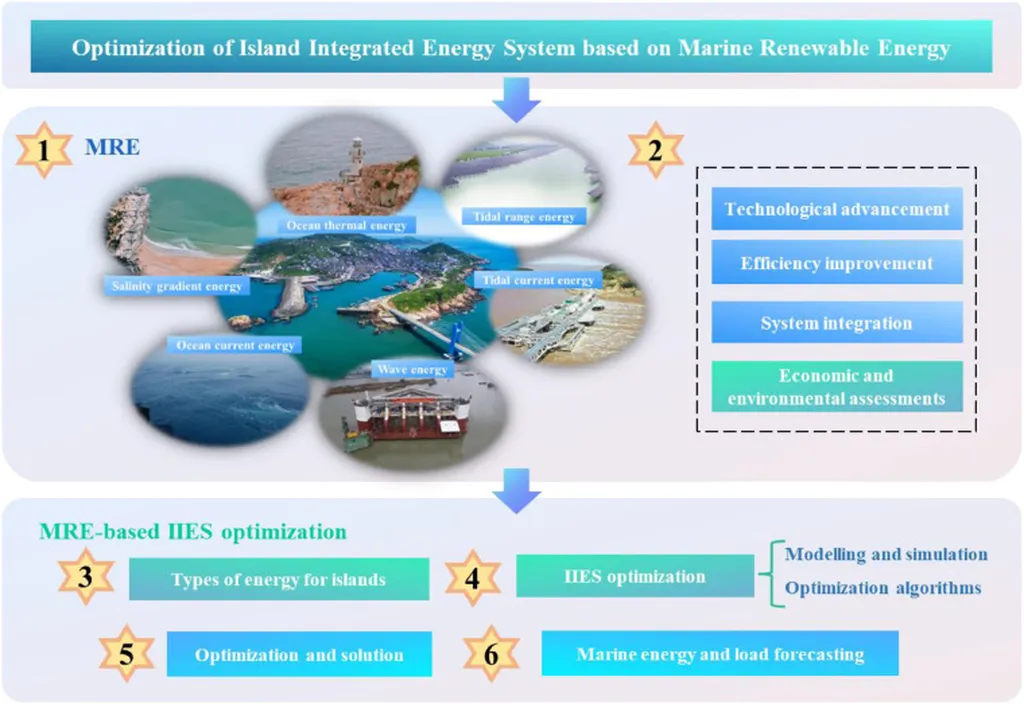In the quest for sustainable and reliable energy solutions, islands face unique challenges. A recent study published in the journal *Fundamental Research* (formerly known as *Fundamental Research*) offers a promising path forward by integrating marine renewable energy (MRE) into island energy systems. Led by Wen Zhao of the National & Local Joint Engineering Research Center of Harbour Oil & Gas Storage and Transportation Technology at Zhejiang Ocean University, the research provides a comprehensive review and strategic framework for optimizing island integrated energy systems (IIES) using marine energy sources.
The study underscores the importance of combining marine energy with conventional sources to address the energy supply challenges faced by islands. “Integrating marine renewable energy with existing systems is not just about sustainability; it’s about creating a resilient, cost-effective, and locally adaptable energy infrastructure,” Zhao explains. By reviewing advancements in energy conversion equipment, grid integration, and energy storage, the research highlights the economic and environmental benefits of marine energy systems. This approach aims to reduce power generation costs while promoting cleaner energy solutions tailored to island needs.
One of the key contributions of this study is its focus on the hierarchical utilization of energy resources and the coupling of multiple energy sources. The research explores how different types of island energy facilities can be integrated to achieve a balanced and efficient energy system. “The goal is to coordinate resources effectively to achieve source–grid–load–storage integration,” Zhao notes. This holistic approach ensures that islands can maximize their energy potential while minimizing waste and environmental impact.
The study also delves into the optimization of IIESs, examining modeling methods, intelligent algorithm development, and system simulation. By considering the integration of marine energy into existing systems, the research provides a roadmap for achieving comprehensive energy source integration. Additionally, the study summarizes optimization and solution methods for IIES models, offering practical insights for energy sector professionals.
Looking ahead, the research suggests that as the efficiency of marine energy improves, its integration into island energy systems will become increasingly viable. “This work aims to inspire the development of new functions and modules based on existing system optimization and forecasting techniques,” Zhao says. By exploring marine energy and load forecasting methods, the study supports the advancement of marine energy utilization, paving the way for more stable and predictable energy outputs.
The implications of this research are significant for the energy sector. As islands strive to achieve sustainable, low-carbon transitions, the integration of marine renewable energy offers a viable solution. By optimizing island energy systems, the study not only addresses immediate energy supply challenges but also contributes to the long-term sustainability of coastal energy systems. As the energy sector continues to evolve, the insights from this research will be invaluable in shaping future developments and ensuring a cleaner, more efficient energy landscape.

